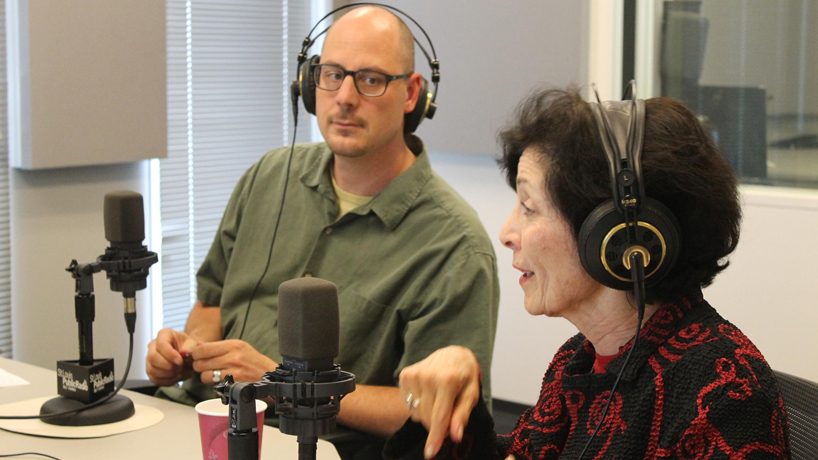Siewert, of UMSL’s Center for Ethics in Public Life, and Vivian Eveloff, of UMSL’s Sue Shear Institute for Women in Public Life, guest on “St. Louis on the Air.”


Siewert, of UMSL’s Center for Ethics in Public Life, and Vivian Eveloff, of UMSL’s Sue Shear Institute for Women in Public Life, guest on “St. Louis on the Air.”
Siewert, of UMSL’s Center for Ethics in Public Life, and Vivian Eveloff, of UMSL’s Sue Shear Institute for Women in Public Life, guest on “St. Louis on the Air.”
Siewert, of UMSL’s Center for Ethics in Public Life, and Vivian Eveloff, of UMSL’s Sue Shear Institute for Women in Public Life, guest on “St. Louis on the Air.”
The annual overnight music camp features an immersive four days of singing led by some of the world’s best-known names in a cappella music.

A letter from St. Louis Alderman Freeman Bosley Sr. that solicited for money to help fund his daughter’s college education has led to media coverage by multiple St. Louis-area news outlets. KMOV (Channel 4) reported that the letter came close to blurring the line between Bosley’s public and private life, but was not illegal. The news station asked Wally Siewert, director of the Center for Ethics in Public Life at the University of Missouri–St. Louis, to weigh in.
A letter from St. Louis Alderman Freeman Bosley Sr. that solicited for money to help fund his daughter’s college education has led to media coverage by multiple St. Louis-area news outlets. KMOV (Channel 4) reported that the letter came close to blurring the line between Bosley’s public and private life, but was not illegal. The news station asked Wally Siewert, director of the Center for Ethics in Public Life at the University of Missouri–St. Louis, to weigh in.
A letter from St. Louis Alderman Freeman Bosley Sr. that solicited for money to help fund his daughter’s college education has led to media coverage by multiple St. Louis-area news outlets. KMOV (Channel 4) reported that the letter came close to blurring the line between Bosley’s public and private life, but was not illegal. The news station asked Wally Siewert, director of the Center for Ethics in Public Life at the University of Missouri–St. Louis, to weigh in.